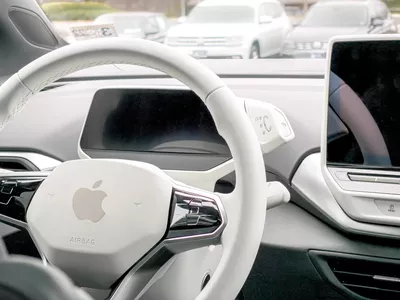
Forgotten The Voicemail Password Of Vivo S17 Pro? Try These Fixes

Forgotten The Voicemail Password Of Vivo S17 Pro? Try These Fixes
You can always stay in touch with friends, family, and coworkers thanks to voicemail support, which is provided by most cell phones. However, forgetting the voicemail passcode is simple when we must remember many codes to open various devices. Fortunately, there are workarounds you can use to get back into your voicemail mailbox. Keep reading to find out what to do if you forget your voicemail password.
Part 1: 3 Easy Ways To Reset Or Change Your Lost Voicemail Password
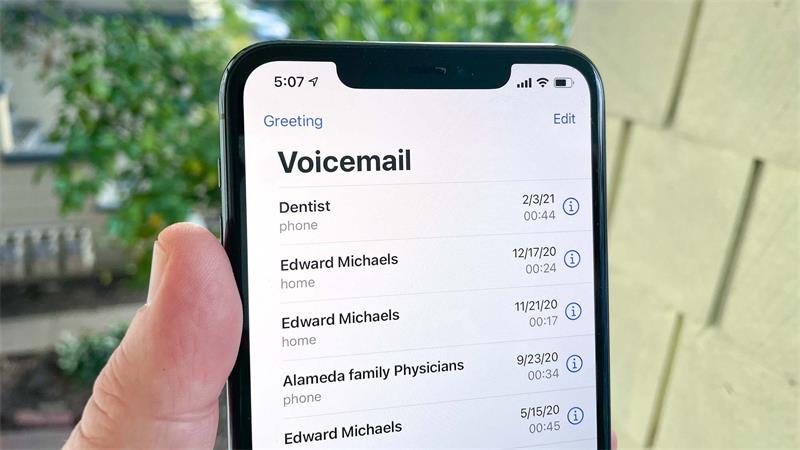
1. Contact your carrier
Your carrier can also unlock your voicemail. Get in touch with your carrier and ask for an unlock. For unlocking, your account may need to satisfy certain conditions. The request can take a few days to be processed after you submit it.
Get in touch with your carrier to find out the status of your unlock request.
The actions following should be followed when your carrier certifies that the voicemail has been reset.
- Take your SIM card out.
- Put the new SIM card in. Your gadget will turn on, and you will be able to generate a new voicemail password.
2. Use your code to reset password
To change your Voicemail password, use star codes. Fortunately, this process is quick and easy, and you won’t need to contact customer care to change your password.
Use the star code as follows:
- Type #793# into the dialer app on your phone.
- Press the Call key.
- Await the instructions.
This will change your voicemail password to your phone’s last four digits.
You can also reset your voicemail password, which means that you can generate a new code by resetting it from the settings. Let’s have a look at how you can do this.
- Open My Wireless from your account summary.
- Select the Vivo S17 Pro device you wish to manage by scrolling to My Devices & Add-ons.
- Choosing Manage my device.
- Look under Device choices & settings, choose Reset voicemail password, then adhere to the on-screen instructions.
3. User carriers’ apps or websites
All of the apps/websites below enable you to reset a voicemail password because they are purely user carrier apps or websites that are recommended officially.
- Vxt
Their voicemail is visually shown via the app.
Your voicemails will be converted to text by Vxt, which will then provide a preview on your lock screen.
Carrier: US Cellular, AT&T, MetroPCS, T-Mobile, Verizon, Alltel, Cricket
- YouMail
YouMail is an Android app that helps you to control visual voicemail. Additionally, it provides some great call-blocking features. With the help of this program, unsolicited calls will never longer ever reach you.
Carrier: US Cellular, AT&T, MetroPCS, T-Mobile, Verizon, Alltel.
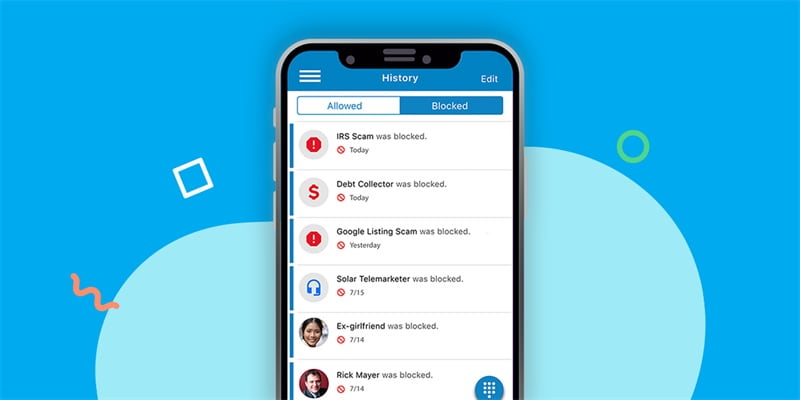
- Visual voicemail from AT&T
You can view the caller’s name and phone number before listening to their message, which makes monitoring your voicemail incredibly simple.
Carrier: US Cellular, AT&T, MetroPCS, T-Mobile, Verizon, Alltel, Cricket
Part 2: FAQs
1. How To Know My Default Voicemail Password?
Depending on your carrier, the default voicemail password is either the last seven or final four digits of your phone number. Your voicemails should be accessible if you dial the number without the area code. In this way, you can quickly get your default voicemail password.
### 2\. Can I Remove My Voicemail Password?From your mobile device, dial 123 to see the password for your voicemail. To enable (add) or disable (delete) your voicemail password, choose option 4. To enable or disable the screen password, select option 1. If your password has been deactivated, dialing 123 will not ask you to enter one.
3. How Can I Receive Voicemail Messages From Another Device?
You may access your mailbox on another phone if your phone is out of reach or the battery is dead. Make a call to your phone number from a different one. Tap the pound key (#) on the phone’s dial pad after the prerecorded “Please leave a message” greeting has begun to play. Enter the pin from your voicemail to start receiving messages from another device.
Bonus Tip: Best Tool When You Forgot The Phone Password

Dr.Fone - Screen Unlock (Android)
The Best Tool to Remove the Phone Screen!
- Completely unlinked from the previous Google account, it won’t be traced or blocked by it anymore.
- Remove all Android screen locks (PIN/pattern/fingerprints/face ID) in minutes.
- Almost all Samsung phones and tablets are supported (Currently for Android 6-14).
- Provide specific removal solutions to promise good success rate.
4,008,670 people have downloaded it
Dr.Fone - Screen Unlock (Android) is the ultimate solution when you are sort of a person who always forgets passwords and does not even have any technical knowledge. We always recommend you use easy and safe tools; Dr.Fone - Screen Unlock (Android) is one of them. Here’s how you can use this tool when you forget the phone password and want to recover it on your own.
Step 1: Connect your phone
Installing Dr.Fone on your computer is the first step. From the list of available tools, select “Screen Unlock” from the drop-down menu.
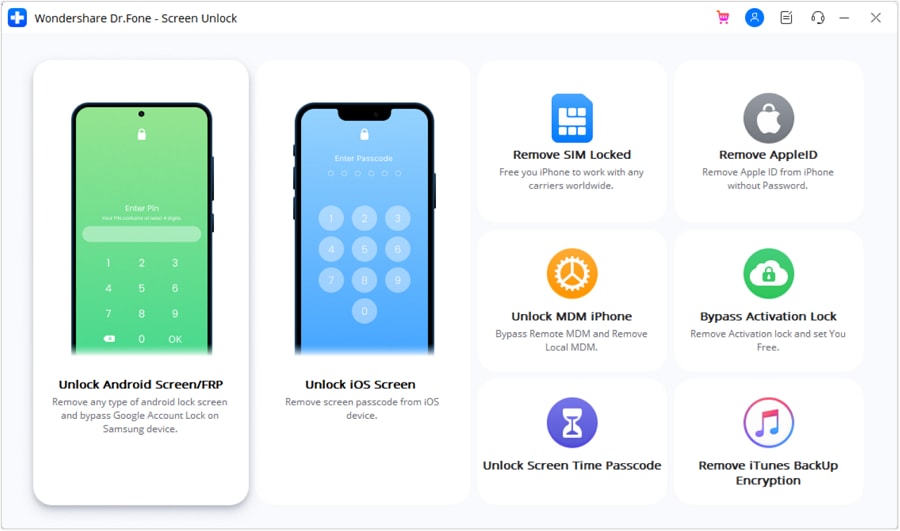
When connecting your locked phone to the PC you wish to save the wallpapers after unlocking it, you should think about utilizing a USB cord. You must select the “Unlock Android Screen” option on the program.
Step 2. Select Unlock Android Screen
In this interface of Dr.Fone, please select “Unlock Android Screen” to keep your unlock process, or your phone cannot be unlocked as you wish.
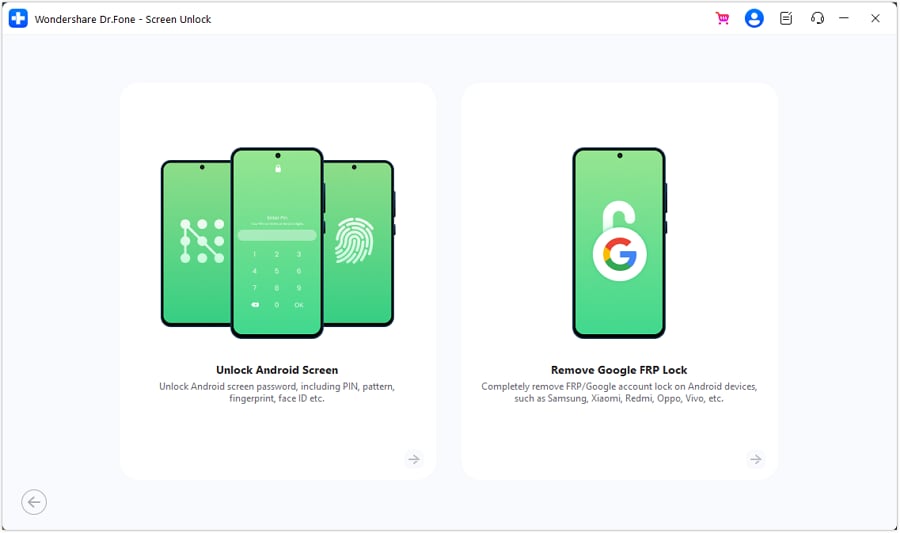
Step 3. Select device model
Besides a part of Samsung and LG models, “100% Remove Screen Lock” includes most Android phone brands. Please choose your phone brand, and don’t make it wrong!
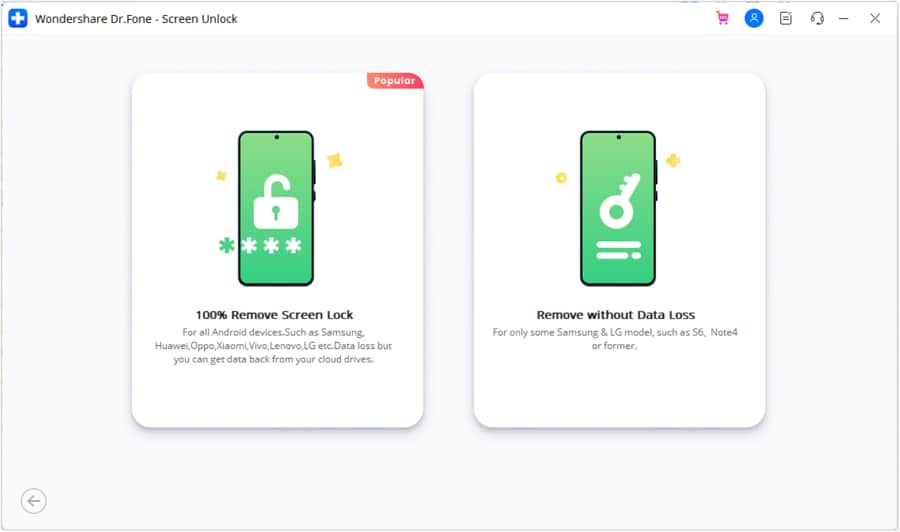Here is the brand list; you can check it and find your phone brand.
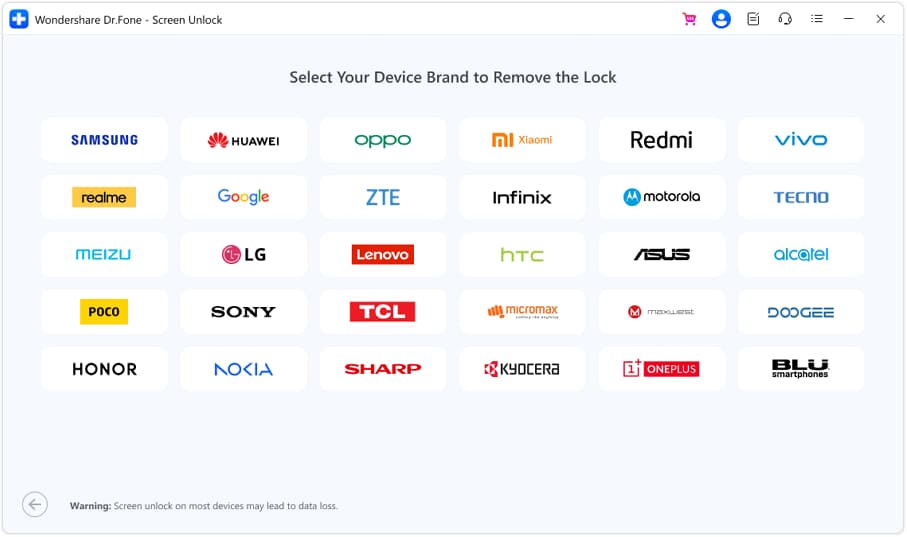
Step 4. Enter into Recovery Mode
Then follow the instructions on the program to get the Android phone into Recovery Mode. Here we take 3 different models of Samsung phones as examples.
Note: Different brands have different steps to enter the Recovery Mode.
Go to the Recovery Mode on Samsung phone with Bixby
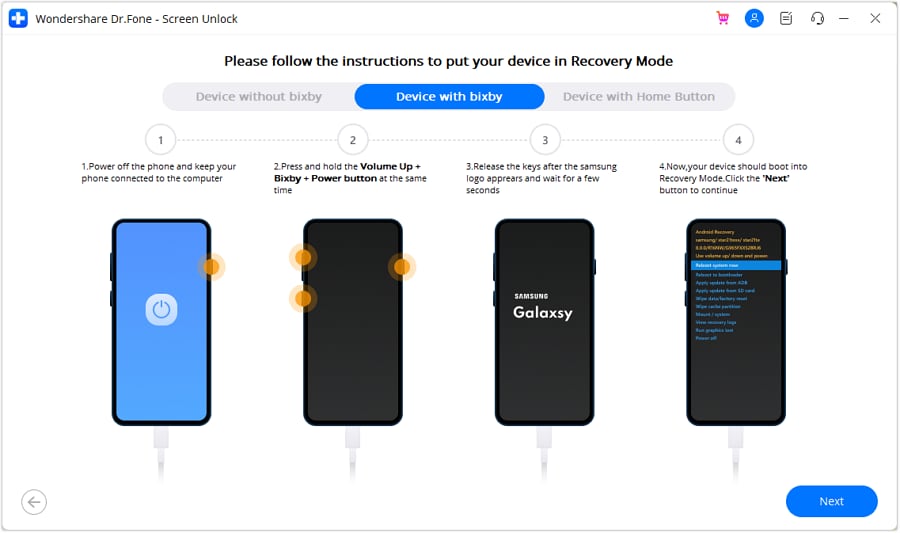
Go to the Recovery Mode on Samsung phone without Bixby
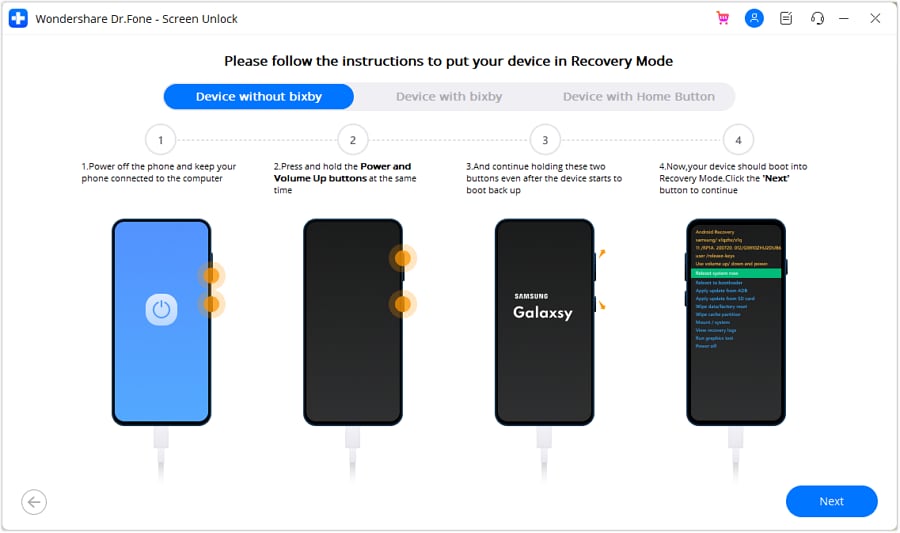
Go to Recovery Mode on Samsung phone with Home Button
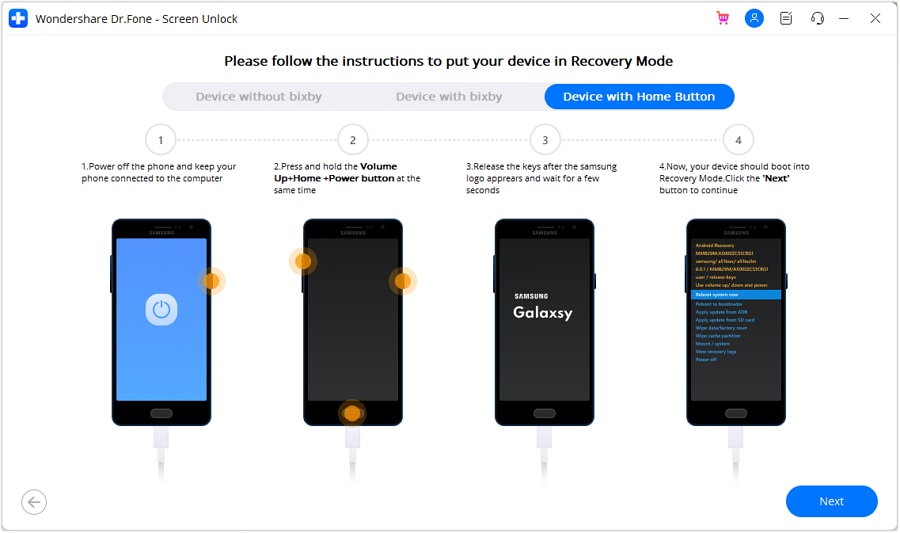
Step 5. Instructions to Wipe Cache Partition
Good! You’re now in the final step, be careful to choose the correct options so that the whole process will be perfectly over.
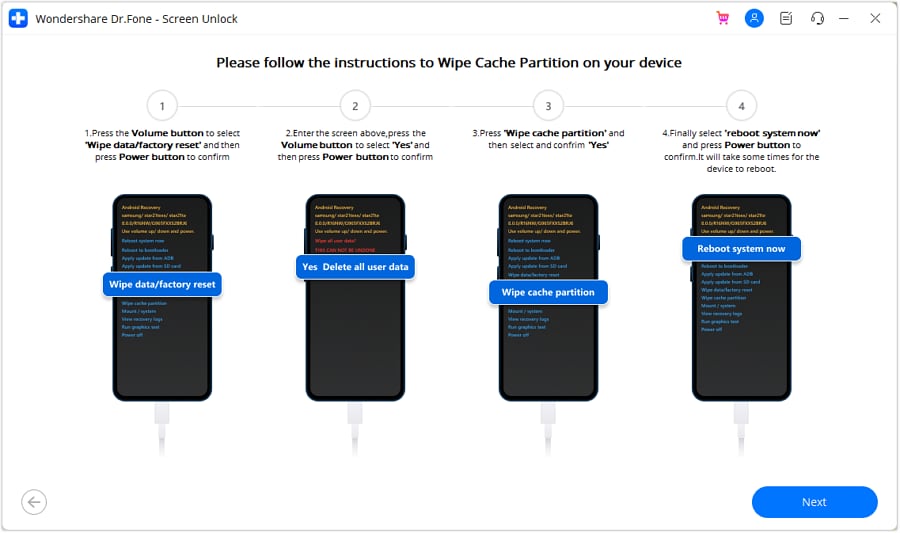
Now no pattern or password is on your phone screen to bother you!
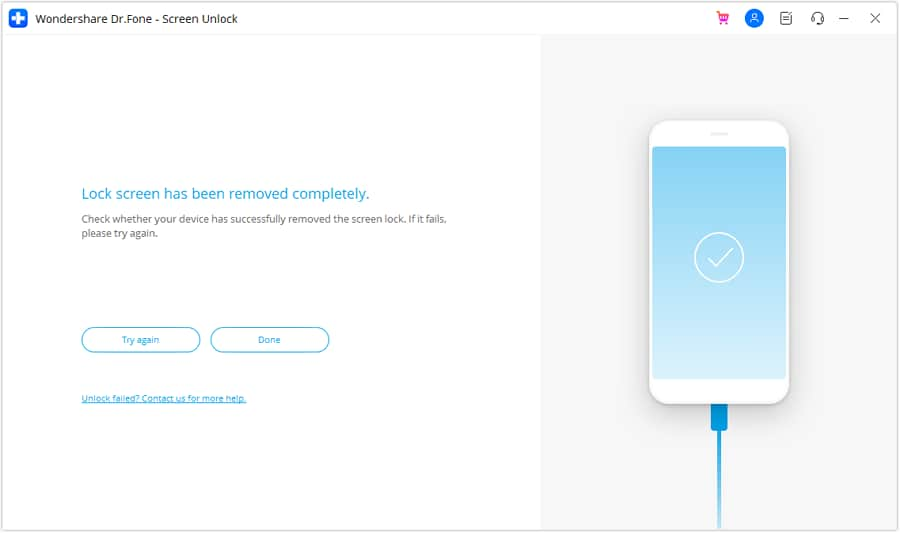
This is how you can easily get rid of phone lock issues.
The Bottom Line
The voicemail function on your mobile device is a crucial tool for improving your interpersonal relationships. You must always have access to it because of this. You may use your iPhone or Samsung smartphone to receive a temporary code even if you forget your password. Alternatively, you can follow instructions for resetting your passcode on the carrier’s app or website.
Have you ever experienced voicemail lockout? Which technique did you employ to fix the issue? Did you know how to reset voicemail password on Android? Comment below with your thoughts and let us know.
How to Unlock Vivo S17 Pro Phone without Google Account?
Uh oh – you’ve forgotten your Android Unlock code, and you can’t get it online to unlock using Google. Nothing could be more frustrating than gazing at your phone, knowing that it is essentially a paperweight at this point. Unless you can get it unlocked, your phone is useless, and all of your important photos, text messages, and content are all locked out of your reach. While right now, nothing can do without a Google account. But you can try to reset your Google account first.
Part 1: How to Bypass Lock Screen on Android device with Google Account (Android Device Manager)
Even if you have a Google account, if your phone isn’t connected to the internet, you cannot access it to unlock your phone. If this sounds familiar, you can always try this method.
1. First, navigate to the Android Device Manager page. You will need to sign in with the Google account that you use to set up your phone.
Android Device Manager link: http://www.google.com/android/devicemanager
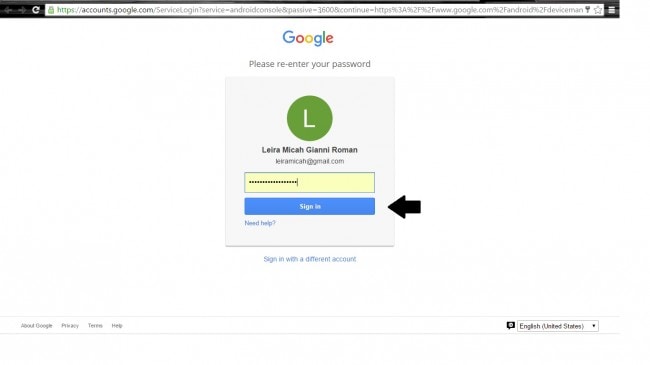
2. Once you have logged in, you will automatically be redirected to the Android Device Manager page. If this is your first time, click the “Accept” button.
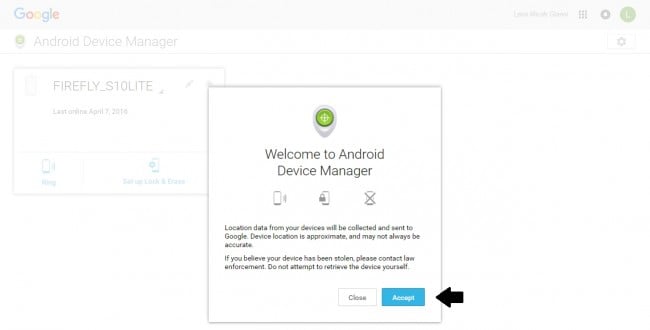
3. A list of all of the Vivo S17 Pro devices registered to this Android account will pop up. Select the Vivo S17 Pro device in question from this list.

4. The Android Device Manager will then locate your device. Make sure it is turned on!
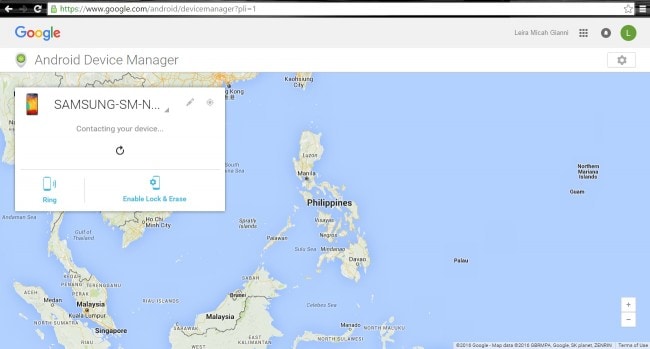
5. After it has been located, you will have a few options for what to do next. If you do not know your phone’s location, you can call it from this screen, but if you know where it is, click the ‘Enable Lock & Erase’ option.
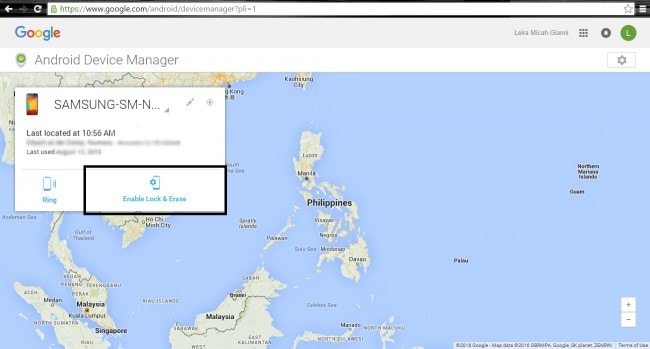
6. A notification will pop up on your device; confirm it.
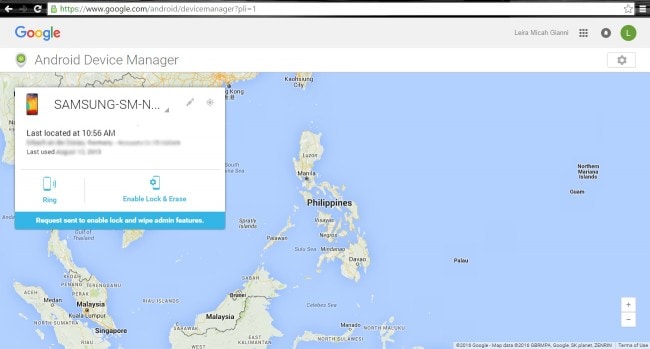
7. At this point, you will be asked to create a new lock screen password. Once you have chosen one, press “Lock.”
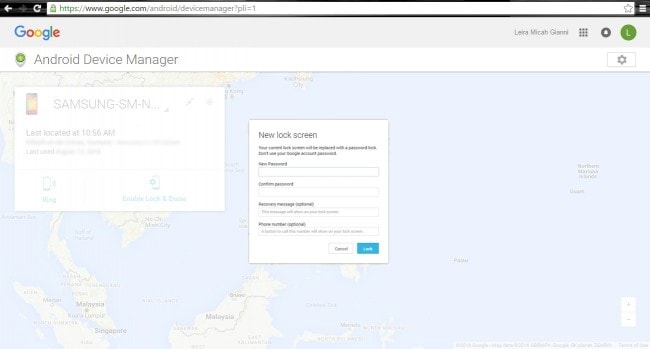
8. Now, simply enter the new passcode on your device, and voila! It will open, and you can get back to your daily routine.
Part 2: How to Reset Your Google Account on your Android Phone
If you have forgotten your Google Account password, it is still possible to unlock your account and access the information within. Here is how you can unlock your Google account on your Android phone.
1. On your browser, go to the Google home page and try to sign in. You will fail, but that is good! It will lead you to the next step.

2. Since you cannot sign in on the sign-in page, you can now select the ‘Help’ link.
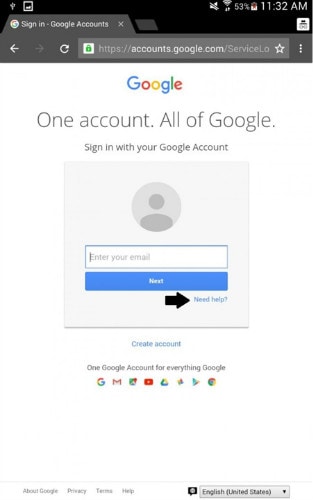
3. Choose the “forgot password” option. You will be prompted to enter your email address to proceed.
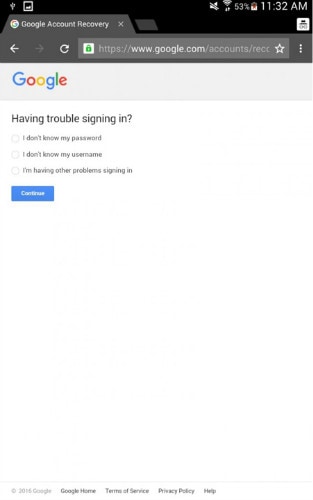
4. Two options will then appear: the first is your phone number, and the other asks you for your backup email.
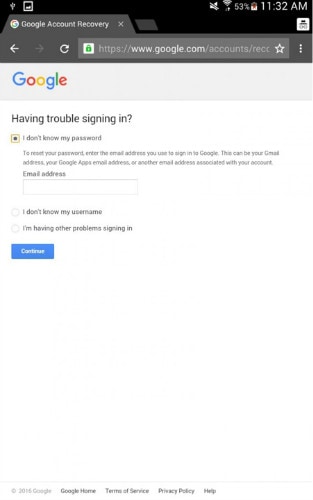
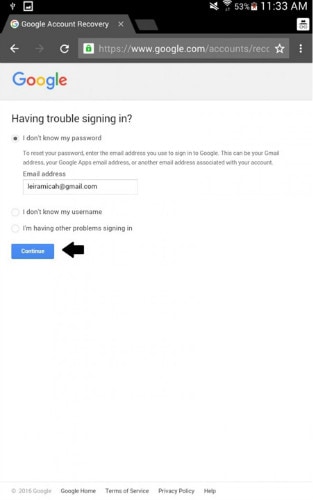
5. Enter either one of these options, and you will receive a verification code via email, SMS, or a telephone call from an operator. If you have chosen to enter your backup email, at this point, you will receive detailed instructions on how to access the ‘reset password’ page.
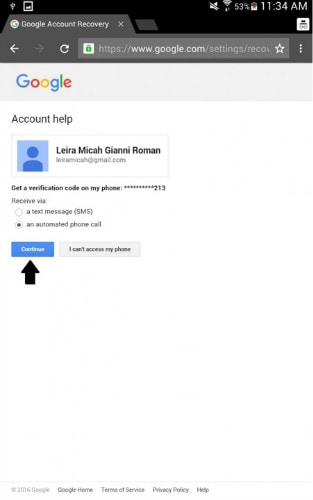
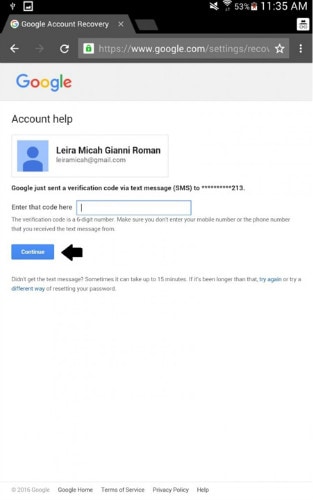
6. Once you have been redirected to the ‘reset password’ page, you can input your new login information.
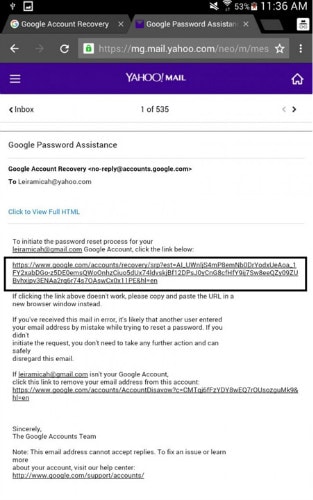
7. Finally, you can unlock your Google account on your Android! Confirm this by clicking the “Change Password” button. Success!
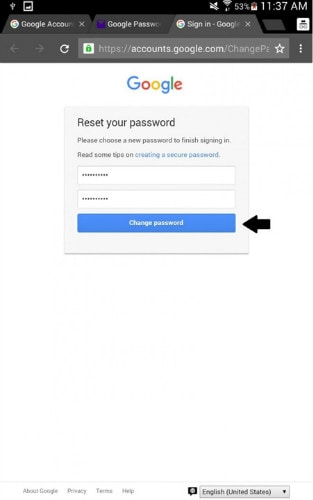
Part 3. How to Remove Locked Screen on Android using Dr.Fone
It supports removing screen lock from mainstream models, such as Samsung, LG, Lenovo, Xiaomi, etc. For some older version Samsung models, you can remove the lock without data loss. It will erase data after unlocking for other models.
Dr.Fone - Android Lock Screen Removal
Remove Android Screen Lock In One Click
- Pattern, PIN, password, fingerprints & face screen lock can all be unlocked.
- Bypass Android FRP lock without a PIN or Google account.
- No tech knowledge asked. Everybody can handle it.
- It will complete the unlocking process in minutes.
3,981,454 people have downloaded it
How to use Dr.Fone to unlock
Step 1: Install Dr.Fone toolkit and select Screen Unlock > Android > Unlock Android Screen.

Now connect your Android phone connected with the PC, and select the Vivo S17 Pro device brand from the list.

Step 2: Follow the on-screen instructions to put your Android device into the specific mode. Once the download is complete, Dr.Fone will start the unlocking process.
Parental Control Software
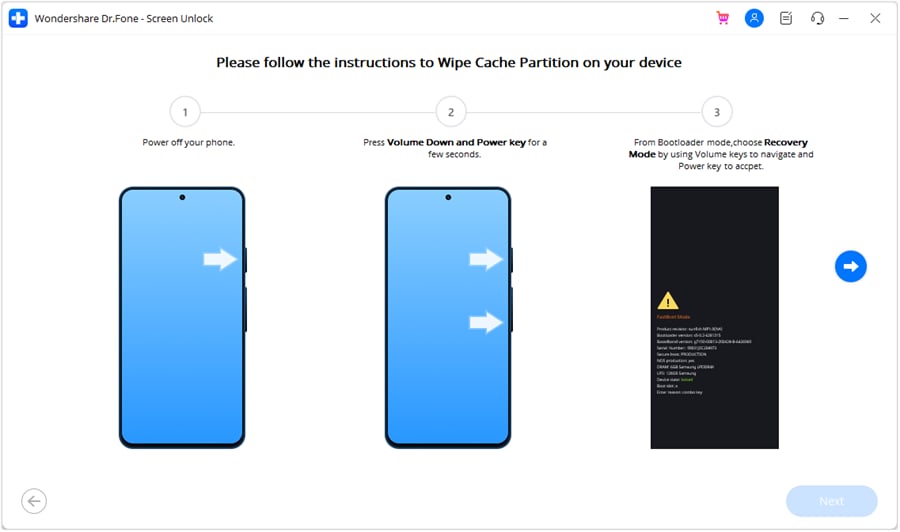Step 3: After the process is complete, your Android device should be unlocked, and you can access it without the screen lock.
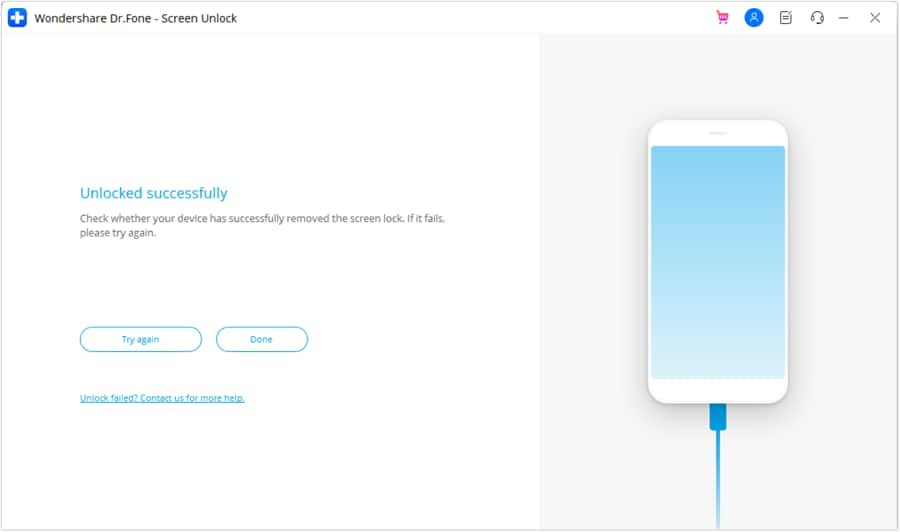
Conclusion
We know that losing or forgetting your Android lock code can be a real pain, and so these solutions are sure to put the smile back on your face and get you using your phone again as usual. As you can see, the Dr.Fone - Screen Unlock (Android) is a simple and reliable way to unlock your Android phone, but you can always try the Google option if you assess that it better suits your needs. No matter which solution you choose, your locked Android phone will be up and running again in no time at all.
How to Show Wi-Fi Password on Vivo S17 Pro
Since the invention of Android OS in 2008 by Andy Rubin, our world has faced a dramatic change. Android seems to be controlling a considerably high portion of our life. We have bought many gadgets that use this amazing OS and most of which are phones. But how much can you do with your Android phone? Developers are always making it more interesting to use this interface.
Most of the time, we use Android phones, we get faced with the need to access the internet. The Wi-Fi capability of these Android gadgets makes it super easy for us to surf the web. Throughout using Wi-Fi, we connect to a number of them. This could be at school, a sub-way café, the gym, buses, hospitals, hotels, towns, and the list is endless. A password secures most of this. Needless to say, our brain is weak to store all these passwords for future use, especially if you would want to connect with a different gadget you have recently bought or even your laptop. In this article, we will introduce you to how to find wifi password on rooted and also unrooted Android devices.
Part 1: Show Wifi Password on Rooted Android Device
What is Rooting?
First of all, what does rooting mean? You have probably used a Windows computer or even Linux. For the case of Windows, when installing a new program or software, it always prompts a dialog box saying, “Administrator permission required to run this program.” If you don’t have the administrator permission, you won’t install the program. In Android, this is called rooting. In simple terms, it means having the root permission to your phone. Some Android apps will require you the root permission, e.g., flashing your ROM. In this part, we will explain how you can show the Wi-Fi password on your Android with root.
To find the Wi-Fi passwords on your Android phone, you need to have an app to explore files which also supports a root user. In this case, ES FileExplorer or Root Explorer will come in handy. However, it turns out that the latter is offered at $3. Let’s use the free ES File Explorer.
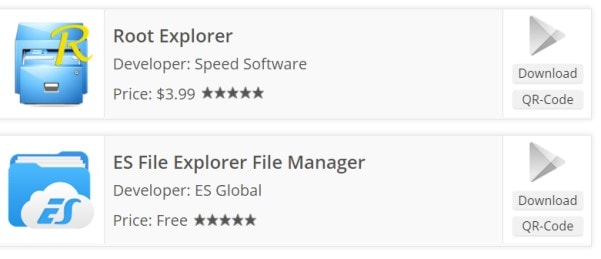Steps of getting Wi-Fi password on Android with root
In only four steps, we, at this moment, learn how we can find the password of a Wi-Fi on an Android phone.
Step 1: Install the ES File Explorer
Download the ES File Explorer from your play store, install it, and open it.

Step 2: Enable Root Explorer
The root explorer needs to be enabled so that you can reach the root folders of the Wi-Fi passwords you need. By default, the root feature in this ES explorer is not enabled. To enable it, just tap on the list menu on the top left corner.:
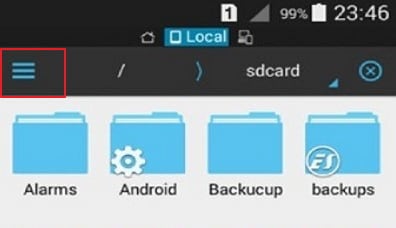
This will drop down a list of controls. Scroll down and find the Root Explorer option and enable it.
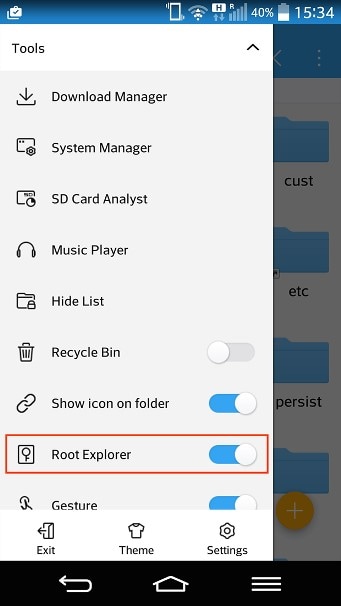
Step 3: Get the passwords’ file.
Go back to ES file explorer, and this time, find the folder named data.
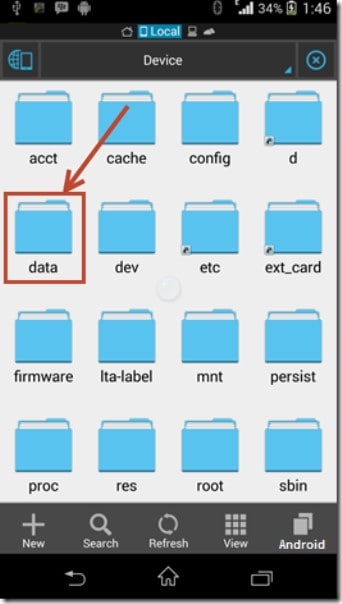
When this folder opens, find another one named misc. Open it and find another one named wifi. Here, find a file named wpa_supplicant.conf.

Step 4: Retrieve the wifi password on Android
Make sure that you don’t edit anything in the file. You might mess up with important data and fail to access the Wi-Fi(s) in the future.
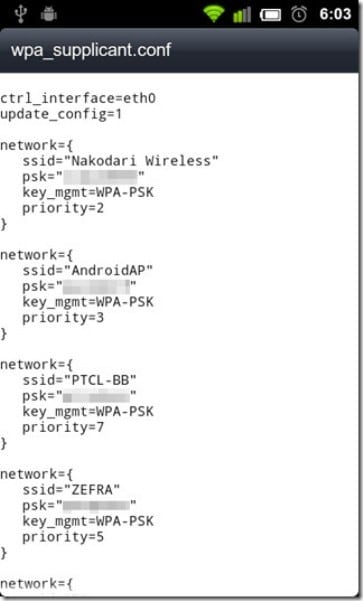
As you can see above, we have found the Wi-Fi passwords on the android device. On each network profile, we have the name of the network represented by name (ssid=”{the name}”), the network’s password represented by psk, the network’s access point represented by key_mgmt=WPA-PSK and its priority represented by priority.
Part 2: Show Wifi Password on Android without Root
What if I don’t have root access to my Android, can I still see Android Wi-Fi password? The short answer is yes. However, this is a bit involving but simple. You don’t need to be a computer guru to do it, but you need to have a computer and some internet access of course. The key thing is to find a way through which we can fetch the password file from the phone without using a root access protocol in the Android. This is made possible by some little programming insight using the Windows Command prompt.
Steps to show Wi-Fi password on Android without root
Step 1: Access the Developer authority
To access the files that Android uses to run passwords, you must first become a developer. This is very simple.
Get your Android phone and go to settings. Scroll down and find “About phone.” Tap on it and scroll down again to find Build number.

Tap on this “build number” 5 to 6 times until a message pops up, saying, “You are now a developer”.
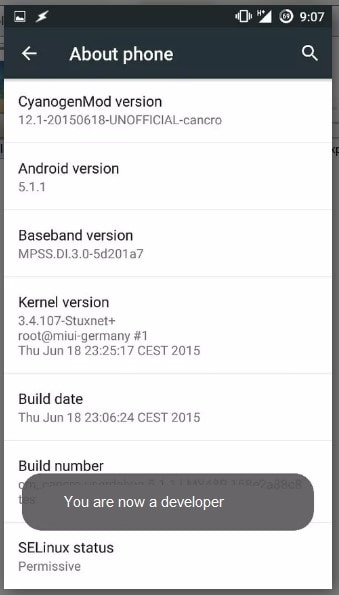
Step 2: Enable the debugging.
Go back to Settings. Scroll down for developer options. Turn on the button for “Android/USB debugging”.
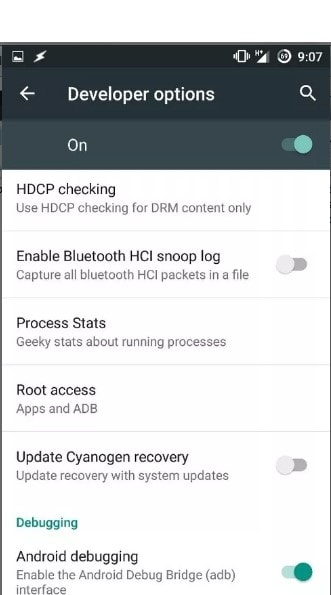
Step 3: Install ADB drivers.
Now, open your Windows desktop. Download and install ADB drivers. (Use this download link adbdriver.com ). You need to download and install platform tools (minimal ADB and fastboot) from http://forum.xda-developers.com/... Now open the folder where you’ve installed the above tools. By default, it is in the Local disc C\windows\system32\platform_tools location. However, you might want to locate them by searching on the windows search engine. You have to hold the Shift key and right-click inside the folder to click on”Open Command Window Here.”
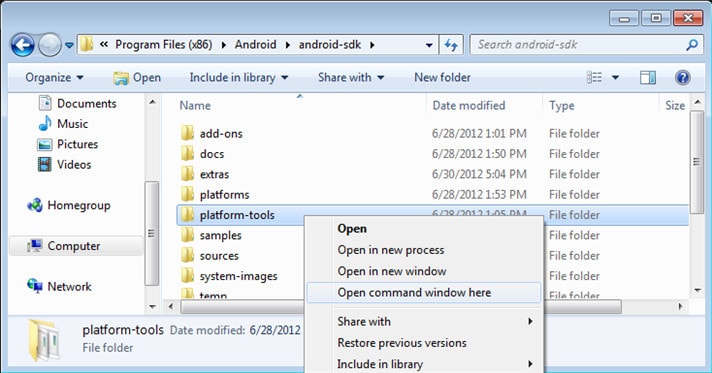
Step 4: Test the ADB
Here, we would like to test whether the ABD is working properly. To do this, connect your phone to the PC using a USB. In the command prompt, type adb services and then press enter. If it’s working properly, you should see a device on this list.

Step 5: Find the Android wifi password.
Now, it is time to type the given command in the command prompt and type: adb pull /data/misc/wifi/wpa_supplicant.conf c:/wpa_supplicant.conf. This will fetch the file from your phone to the local disc C drive of the PC.
Step 6: Get the wifi passwords.
Lastly, open the file with a notepad, and there you go.
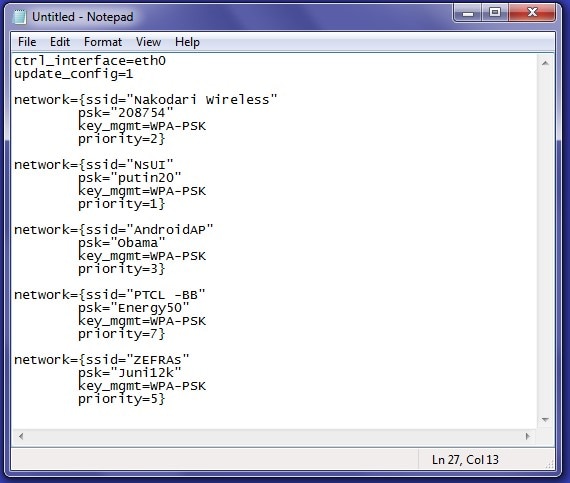
Now you learned how to show the wifi password on your Android device.
- Title: Forgotten The Voicemail Password Of Vivo S17 Pro? Try These Fixes
- Author: Peter
- Created at : 2024-07-16 11:42:35
- Updated at : 2024-07-17 11:42:35
- Link: https://android-unlock.techidaily.com/forgotten-the-voicemail-password-of-vivo-s17-pro-try-these-fixes-by-drfone-android/
- License: This work is licensed under CC BY-NC-SA 4.0.


